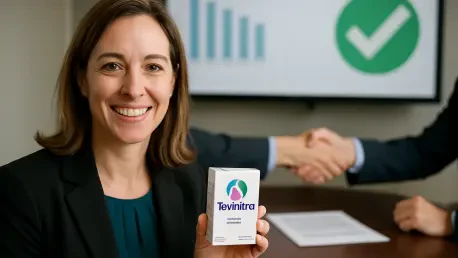Introducing Ivan Kairatov, a renowned Biopharma expert with an extensive background in technology, innovation, and research and development within the pharma industry. Ivan is here to discuss the recent European Commission approval of Tevimbra for nasopharyngeal cancer, a significant milestone in oncology treatment.
Can you provide an overview of Tevimbra and how it works in treating nasopharyngeal cancer?
Tevimbra, or tislelizumab, is primarily an anti-PD-1 monoclonal antibody. It’s designed to enhance the ability of the body’s immune cells to detect and combat tumors. For nasopharyngeal cancer, this drug is used in conjunction with chemotherapy agents like gemcitabine and cisplatin. The combination aims to attack the cancer on multiple fronts, making the treatment more potent against metastatic or recurrent forms of the disease.
What is the significance of the European Commission’s approval for Tevimbra?
This approval is vital as it marks a major advancement in treatment options for nasopharyngeal carcinoma patients in Europe, particularly those for whom traditional surgery or radiotherapy is no longer viable. It provides a new first-line treatment combination that has demonstrated remarkable clinical benefits, which is crucial for managing this challenging condition.
Could you elaborate on the RATIONALE-309 trial results that supported the approval of Tevimbra?
The results from the RATIONALE-309 trial were indeed compelling. The trial exhibited that Tevimbra, when combined with chemotherapy, resulted in a 48% reduction in the risk of disease progression or death compared to a placebo. This was a substantial finding as it translates to a median progression-free survival of 9.2 months as opposed to just 7.4 months in the placebo group. Moreover, overall survival rates significantly improved, with a median survival of 45.3 months for the Tevimbra cohort versus 31.8 months for those on placebo.
How does Tevimbra’s mechanism as an anti-PD-1 monoclonal antibody contribute to its effectiveness against nasopharyngeal cancer?
Tevimbra works by blocking the PD-1 pathway, which is often manipulated by cancer cells to evade immune detection. By inhibiting this pathway, Tevimbra enables immune cells to recognize and attack cancer cells more effectively. This mechanism is particularly effective in types of cancers that are prevalent in immune-resistant environments, such as nasopharyngeal carcinoma.
Why is this approval an important advancement for patients with recurrent or metastatic nasopharyngeal carcinoma?
Patients with recurrent or metastatic nasopharyngeal carcinoma typically have limited treatment choices. The approval of Tevimbra provides a new line of hope, offering a treatment that not only can significantly extend progression-free periods but also improve overall survival rates. This marks a meaningful shift in the management of this underserved patient population.
What challenges are associated with treating advanced stages of nasopharyngeal cancer?
One of the biggest challenges is the late diagnosis. By the time it’s detected, the cancer is often at an advanced stage, reducing the effectiveness of standard treatments. Additionally, the complex anatomy of the nasopharynx makes surgical intervention difficult, and traditional therapies come with significant side effects, making them less desirable for many patients.
In terms of administration, how is Tevimbra given to patients?
Tevimbra is administered intravenously, ensuring that it can be effectively delivered and circulated throughout the body to maximize its therapeutic effect. This method of administration is crucial for drugs like monoclonal antibodies, which require systemic exposure to reach the targeted sites efficiently.
Beyond nasopharyngeal cancer, for what other cancers is Tevimbra currently approved in the EU?
Tevimbra has been approved for use in several other cancers across the EU, including non-small cell lung cancer, small cell lung cancer, esophageal squamous cell carcinoma, and gastric or gastroesophageal junction adenocarcinoma. This broad range of approvals highlights its versatile application in oncology.
How does the recent approval for nasopharyngeal cancer align with BeOne Medicines’ strategy for expanding access to Tevimbra across solid tumors?
The nasopharyngeal cancer approval is an integral part of BeOne Medicines’ broader strategy to extend the accessibility of Tevimbra across various solid tumors. By continually broadening its applicability, the company is reinforcing its commitment to advancing immunotherapeutic options and addressing unmet medical needs on a wider scale.
Could you discuss your perspective on the future potential of Tevimbra in oncology treatment?
The future of Tevimbra in oncology is promising, especially with its expanding list of approvals. Its unique mechanism of action and solid results in clinical trials suggest it could become a cornerstone in the treatment of various solid tumors. Continued research and development could lead to even more breakthroughs, possibly expanding its use to other cancers and consolidating its position as a key player in precision oncology.









